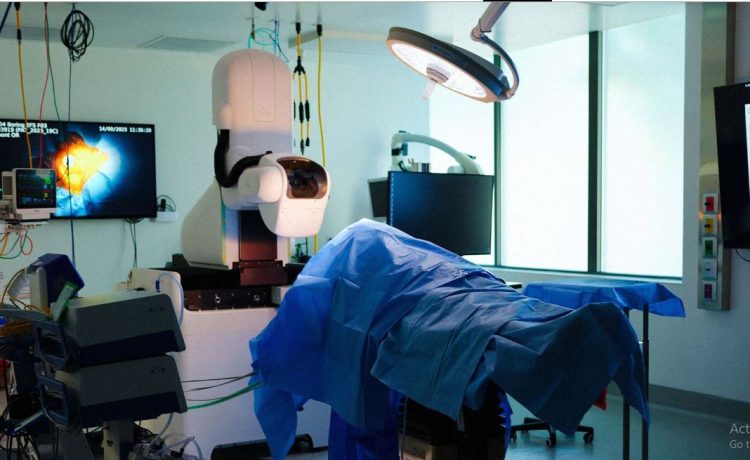Elon Musk’s Neuralink Corp. is preparing for a groundbreaking clinical trial that seeks a volunteer willing to undergo a remarkable procedure involving brain surgery. This endeavor, unlike Musk’s ventures into space exploration and electric vehicles, focuses on unlocking the potential of human brains through advanced technology.
The trial aims to demonstrate the safety and effectiveness of Neuralink’s cutting-edge brain-computer interface technology. The procedure involves the insertion of a series of electrodes and superthin wires into the participant’s brain by a large robot.
This intricate operation will necessitate the removal of a portion of the participant’s skull, which will be replaced with a computer device roughly the size of a quarter. This computer implant is designed to remain in place for an extended period, with the primary function of reading and analyzing the individual’s brain activity. The gathered information will then be wirelessly transmitted to a nearby laptop or tablet for further analysis.
Neuralink’s ideal candidate for this groundbreaking clinical trial is an adult under the age of 40 who has experienced full limb paralysis.
The implant is intended to be inserted into what is known as the “hand knob area” of the premotor cortex, responsible for the control of hand, wrist, and forearm movements. The overarching objective of this endeavor is to showcase that the Neuralink device can be safely implanted and effectively interpret and transmit neural signals.
The implications of this innovative technology are far-reaching, as it has the potential to significantly enhance the quality of life for individuals with severe paralysis. By deciphering and transmitting brain activity, this technology may open new doors for communication and control, offering newfound hope and possibilities for those facing mobility challenges.
Elon Musk’s Neuralink project represents a pivotal moment in the fusion of advanced technology with medical science. As the trial progresses, it will be closely monitored for safety, efficacy, and the potential to revolutionize the way we interface with our own neural networks. The implications of this endeavor may extend beyond medical applications, ultimately influencing the fields of neuroscience and human-machine interactions.
The forthcoming clinical trial holds the promise of bringing us closer to a future where technology and the human mind are seamlessly integrated, unlocking new horizons in human potential and advancing the frontiers of science and medicine.







